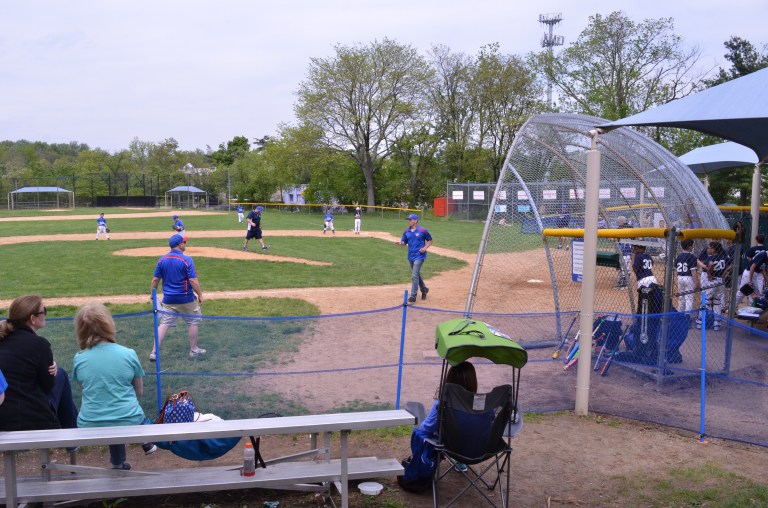
The Town of North Hempstead is reviewing its agreement with a New Hyde Park Little League baseball organization after paying more than $38,000 in costs the league should have covered under that agreement.
The town’s 2003 pact with the Merillon Athletic Association gives the league exclusive use of the Merillon Ball Field on Marcus Avenue for 30 years, in exchange for the league paying for all maintenance, repairs and utility costs.
But the town started paying electric bills for the facility in December 2011 and continued paying them until at least December 2016, town records show. The expenses from that time total $38,383.40.
Town officials and league leaders plan to meet on April 3 to discuss the agreement, Carole Trottere, a town spokeswoman, said.
“We are currently reviewing the contract with the Merillion Athletic Association and will be meeting with them in the near future,” Trottere said in a statement.
The agreement, which the Town Board approved in 2003 under then-Supervisor May Newburger, lets the Merillon Athletic Association use the three fields and one building at the town-owned park for free.
In addition to covering all maintenance and utility costs, the league must maintain a $2 million insurance policy, exclude the town from any liability for accidents at the park and submit to audits by the town, according to a copy of the agreement.
The town started paying all electric bills at the field in late 2011 when a drop in membership left the league without enough revenue to cover them, said Tony Camilleri, the league’s chairman from 1990 to 2015.
The league only paid a few electric bills before then, Camilleri said. But the town only provided bills dating back to December 2011 in response to a Freedom of Information request seeking utility bills paid between 2003 and December 2016.
Trottere did not comment on why the town started paying the bills or whether the nature of the agreement had changed since 2003.
The town is also planning to replace the infield on one of the ballfields with a $50,000 state grant awarded through the State and Municipal Facilities Program, according to the town’s 2017 capital plan.
League officials will work with the town to meet the terms of the pact after discussing them at next week’s meeting, Tom Murphy, the Merillon Athletic Association chairman, said.
“Whatever’s in our agreement, we will abide by it,” Murphy said. “If they send me an electric bill, we’ll pay the electric bill.”
The Merillon Athletic Association was founded in 1951 and serves about 300 players between ages 5 and 18, Camilleri said. North Hempstead and the Village of Lake Success helped the league get a grant for the ball field property in 1955; the town later took ownership.
The league spends at least $30,000 of its $200,000 annual budget to maintain the fields and facilities, according to Camilleri and Murphy.
Volunteers also take out trash and complete other tasks that paid town employees do at other parks, Camilleri said.
“As far as the town and the community are concerned, I definitely think nobody’s getting any advantagous thing here other than the kids theselves,” Murphy said.
But the arrangement with the town has drawn criticism recently from North New Hyde Park civic leaders, who say taxpayers should not be footing bills for a facility they can’t use without permission from a private organization.
The town could be losing permit revenue it would receive if the public could rent the fields, which may be underutilized when the Merillon league isn’t using them, Bobby Thind, vice president of the Lakeville Estates Civic Association, said.
“If the town owns it and we live in the town, all of us should get equal chance of using the field, which is not the case,” Thind said.
But Murphy said there is not high demand from other local baseball teams to use the facility.
The league never rents the field to other groups and makes no profits from the arrangement with the town, which may actually cost the town less than if it maintained the park itself, he said.
Bill Cutrone, the Lakeville Estates Civic Association president, said he hopes the league and the town will come to an agreement next week that serves everyone’s best interests.
“I trust Judi [Bosworth, the town supervisor] will do the best for everybody, and I have no problem with whatever decision she comes up with,” Cutrone said.






